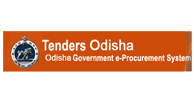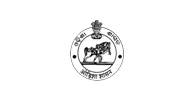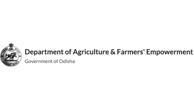The GCF project, titled "Ground water recharge and Solar Micro Irrigation to ensure food security and enhance resilience in vulnerable tribal areas of Odisha", aims to enhance climate resilience and promote sustainable development in the state of Odisha, India.
Aim/Primary Objective of the GCF Project: The primary objective of this project is to enhance groundwater recharge in the community ponds through structural adaptation measures and use of solar pumps for micro-irrigation to ensure water security and food security in the vulnerable areas of the state of Odisha, India.
Sub-Objectives of the Project: The sub-objectives to achieve its primary aim:
- Augmentation of groundwater recharge to improve water table and water quality conditions in rural areas (Gram Panchayat) through the adoption of recharge systems in existing village ponds/tanks.
- Sustainability of groundwater-based schemes (domestic/irrigation) at the Gram Panchayat level, including the revival of defunct community tanks used as drinking water sources for reducing vulnerability.
- Use of solar pumps for irrigation as a component of a low-emission, climate-resilient crop planning strategy.
- Increased climate-resilient sustainable development.
- Enhanced livelihoods and increased resilience for the most vulnerable people, communities, and regions.
- Increased resilience of health and well-being, and food and water security.
- Promotion of a sustainable strategy for energy security through low-emission crop water management.
- Create a knowledge base for enabling policy and regulatory framework for market transformation
Components and Activities of the GCF Project: The project is structured into seven main components, each with specific outputs and activities:
Knowledge Management
- Activity 6.1.1: Preparation of policy briefs for Odisha ground water management and development regulation, state water policy and relevant facilitation This activity focuses on preparing policy briefs that provide inputs for Odisha's groundwater management and development regulation, state water policy, and other relevant policies for market transformation.
- Activity 6.2.1: Process documentation and preparation standard operating procedure for development of solar pumping value chain This activity involves documenting processes and preparing SOPs to build a robust solar power ecosystem in the state, with trained women in villages providing last-mile links.
- Activity 6.3.1: Science to policy knowledge product framework developed This activity focuses on developing a framework and producing knowledge products and publications to translate scientific findings into actionable policies.
- Activity 6.4.1: Process document for convergence with other departments are developed This activity involves developing process documents outlining modalities for convergence and collaboration with other government departments, vetted by the steering committee.
- Activity 6.5.1: Quarterly project newsletter published This activity involves the preparation and publication of a quarterly project newsletter, disseminating stories from the field and important milestones to stakeholders.
- Activity 6.6.1: Ten peer learning workshops are conducted during the lifecycle of the project This activity organizes ten peer learning workshops throughout the project lifecycle, categorized as inception and peer learning events, to share knowledge and experiences.
Output 6.1: Preparation of policy briefs for Odisha ground water management and development regulation, state water policy and relevant facilitation
Output 6.2: Process documentation and preparation standard operating procedure for development of solar pumping value chain
Output 6.3: Science to policy knowledge product framework developed
Output 6.4: Process document for convergence with other departments are developed
Output 6.5: Quarterly project newsletter published
Output 6.6: Ten peer learning workshops are conducted during the lifecycle of the project











